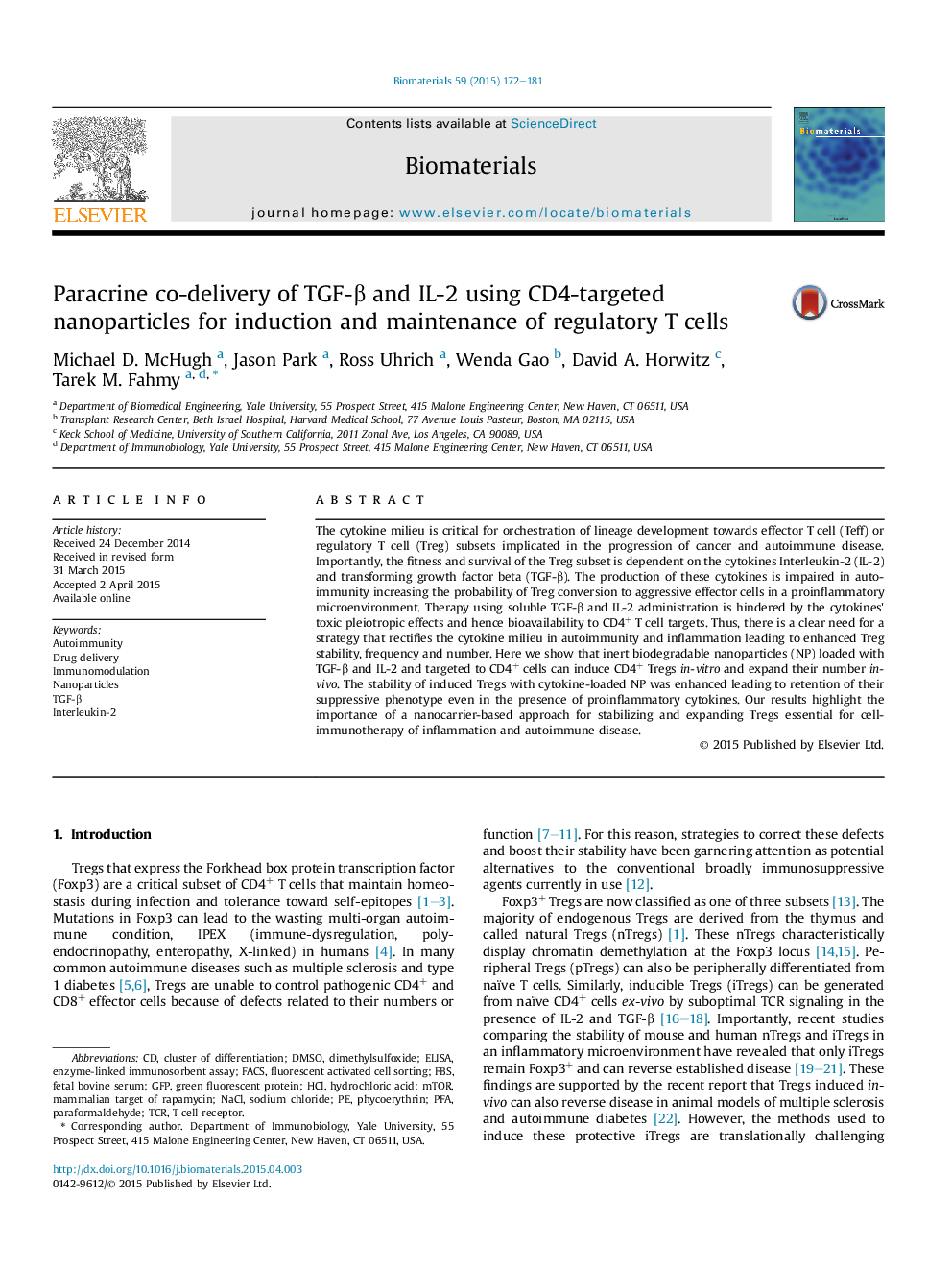| Article ID | Journal | Published Year | Pages | File Type |
|---|---|---|---|---|
| 6485681 | Biomaterials | 2015 | 10 Pages |
Abstract
The cytokine milieu is critical for orchestration of lineage development towards effector T cell (Teff) or regulatory T cell (Treg) subsets implicated in the progression of cancer and autoimmune disease. Importantly, the fitness and survival of the Treg subset is dependent on the cytokines Interleukin-2 (IL-2) and transforming growth factor beta (TGF-β). The production of these cytokines is impaired in autoimmunity increasing the probability of Treg conversion to aggressive effector cells in a proinflammatory microenvironment. Therapy using soluble TGF-β and IL-2 administration is hindered by the cytokines' toxic pleiotropic effects and hence bioavailability to CD4+ T cell targets. Thus, there is a clear need for a strategy that rectifies the cytokine milieu in autoimmunity and inflammation leading to enhanced Treg stability, frequency and number. Here we show that inert biodegradable nanoparticles (NP) loaded with TGF-β and IL-2 and targeted to CD4+ cells can induce CD4+ Tregs in-vitro and expand their number in-vivo. The stability of induced Tregs with cytokine-loaded NP was enhanced leading to retention of their suppressive phenotype even in the presence of proinflammatory cytokines. Our results highlight the importance of a nanocarrier-based approach for stabilizing and expanding Tregs essential for cell-immunotherapy of inflammation and autoimmune disease.
Keywords
TGF-βFACSFBSPFAHClNaClTCrmTORGFPDMSOhydrochloric acidInterleukin-2Drug deliveryELISAEnzyme-linked immunosorbent assayImmunomodulationautoimmunitycluster of differentiationfluorescent activated cell sortingDimethylsulfoxideSodium chloridefetal bovine serumphycoerythrinNanoparticlesmammalian target of rapamycinparaformaldehydegreen fluorescent proteinT cell receptor
Related Topics
Physical Sciences and Engineering
Chemical Engineering
Bioengineering
Authors
Michael D. McHugh, Jason Park, Ross Uhrich, Wenda Gao, David A. Horwitz, Tarek M. Fahmy,
